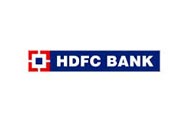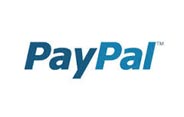How to find best travel website design companies?
Finding
travel website design companies
involves a systematic approach to ensure you select a reliable and skilled partner. Start by conducting online research using search engines and business directories. Look for travel tech companies with a portfolio showcasing relevant travel website design experience. Explore social media platforms and industry forums to gather recommendations and reviews from clients.
Attend industry events and conferences where you can connect with design professionals and agencies specializing in travel websites. Utilize freelance platforms like Upwork or Fiverr to find individual designers or smaller agencies. Additionally, explore design showcases like Awwwards to discover top-performing travel website designs and identify the agencies behind them.
Request proposals from shortlisted companies, detailing your project requirements and budget constraints. Evaluate their responsiveness, communication skills, and previous client testimonials. Consider the company's expertise in user experience (UX) design, mobile responsiveness, and integration capabilities with booking engines and third-party APIs.
Ultimately, choosing a
travel website design company
involves a combination of thorough research, client testimonials, and direct communication to ensure they align with your project goals and vision.
Digital Marketing Initiatives for Travel Websites
Marketing a travel booking website online involves a strategic approach to reach and engage potential users. Start by
optimizing travel website
for search engines (SEO) to improve visibility in search results. Utilize paid advertising, such as Google Ads, to target specific keywords and demographics related to travel bookings.
Create engaging and shareable content, including travel guides, destination highlights, and user testimonials, to drive organic traffic and social media engagement. Leverage social media platforms to showcase travel deals, customer experiences, and collaborate with influencers to reach a wider audience.
Implement email marketing campaigns to nurture leads, promote special offers, and keep users informed about travel trends. Utilize affiliate marketing by partnering with relevant travel bloggers or influencers to expand your reach.
Encourage user-generated content by featuring customer reviews, photos, and testimonials on your website. Implement retargeting ads to re-engage users who visited your site but did not complete a booking. Offer loyalty programs or exclusive discounts to encourage repeat business.
Lastly, monitor website analytics to track user behavior, measure marketing campaign effectiveness, and continuously refine your online marketing strategy based on data-driven insights.
Examples of Top Travel Websites
There are numerous travel websites that cater to different aspects of travel, offering services ranging from flight and hotel bookings to travel reviews and itinerary planning. Here are some
well-known travel websites
:
Expedia: Expedia is a comprehensive travel website that allows users to book flights, hotels, car rentals, cruises, and vacation packages. It also provides a range of travel deals and discounts.
Booking.com: Primarily focused on hotel reservations, Booking.com offers a wide range of accommodations, including hotels, apartments, and vacation rentals. Users can often find detailed reviews from other travelers.
Kayak: Kayak is a
travel search engine
that helps users find and compare prices for flights, hotels, car rentals, and vacation packages. It aggregates information from various travel sites to provide comprehensive results.
Skyscanner: Skyscanner is a global travel search engine that helps users find and compare prices for flights, hotels, and car rentals. It also offers a "flexible" search option, allowing users to explore travel options without specific dates or destinations.
TripAdvisor: TripAdvisor is known for its extensive database of travel reviews and ratings. In addition to reviews, it offers hotel and restaurant bookings, as well as forums for travelers to ask and answer questions.
Airbnb: Airbnb is a platform that connects travelers with hosts offering accommodations, such as homes, apartments, and unique stays. It provides an alternative to traditional hotels, allowing users to experience local culture.
Google Flights: Google Flights is a flight search engine that enables users to find and compare airfares. It provides features like price tracking, allowing users to monitor fare changes for specific routes.
Priceline: Priceline offers a range of travel services, including flights, hotels, car rentals, and vacation packages. It is known for its "Name Your Own Price" feature, where users can bid on hotel rooms and rental cars.
Orbitz: Orbitz is a travel website that allows users to book flights, hotels, car rentals, cruises, and vacation packages. It also provides a loyalty program for frequent travelers.
Travelocity: Travelocity is an online travel agency offering services such as flight and hotel bookings, car rentals, and vacation packages. It provides a Price Guarantee, ensuring that customers receive the lowest price available.
These are just a few examples, and the travel industry has a wide range of websites catering to different needs and preferences. When using any travel website, it's essential to read reviews, compare prices, and ensure that the site is reputable and secure.

















